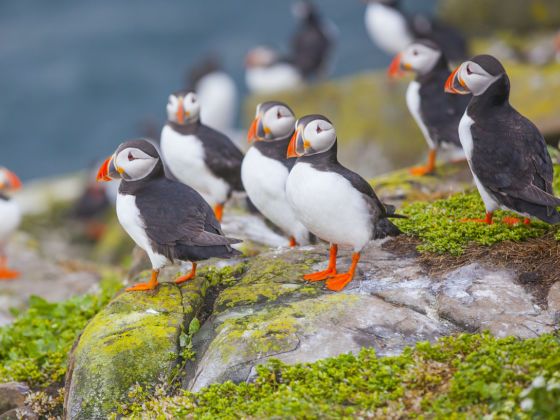Like many other animals who have reclaimed their habitats during the COVID-19 pandemic, puffins are enjoying the Farne Islands, off the coast of Northumberland in northwest England, refreshingly free of tourists.
The seabirds started returning to the Farne Islands in March as they do every year, and now, the islands are full of them.
Owned by the National Trust, the islands are usually open to visitors from spring to fall, with mid-April to late July being the best time of the year to see birds. But they’re currently closed to the public due to the pandemic, which is a bummer for avid birdwatchers, but great news for the puffins that can expand their nesting grounds in the absence of tourists.
